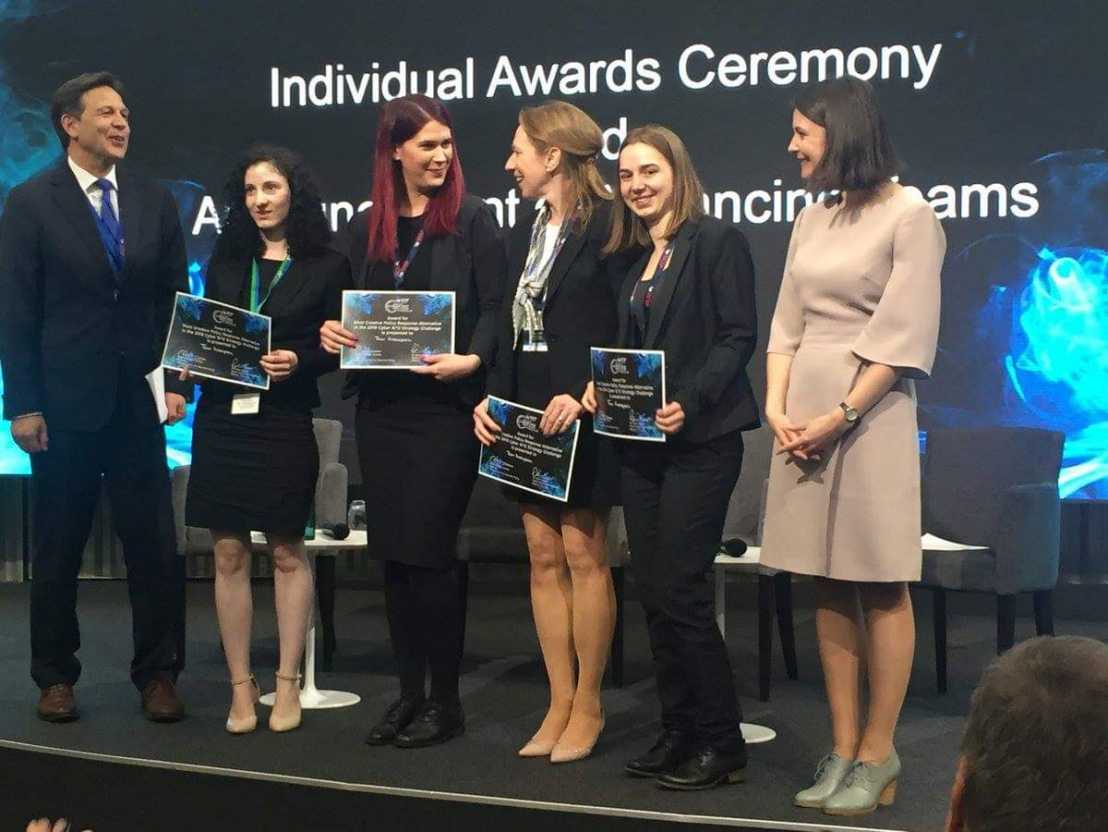Team Kassiopeia wins “Most Creative Policy Response Alternative”
Congratulations to Team Kassiopeia, who took home the prize for “Most Creative Policy Response Alternative” during this year’s Cyber 9/12 Strategy Challenge.

Congratulations to Team Kassiopeia, who took home the prize for “Most Creative Policy Response Alternative” during this year’s Cyber 9/12 Strategy Challenge hosted by the Geneva Centre for Security Policy. The Cyber 9/12 Strategy Challenge is an annual cyber policy competition for students across the globe to compete in developing national security policy recommendations that tackle a fictional cyber incident.
Team Kassiopeia is comprised of Karin Holzhauser, Bachelor student of Computer Science at ETH; Jelena Mihajlovic, Master student in Comparative and International Studies and research assistant at European Politics Research Group at ETH; Lara Lazier, Bachelor student of Computer Science at ETH; Alice Brazzola, Master student in Business Administration at HSG. Dr. Laura Crespo from EDA, Bern coached the team.
The policy brief is the response to a fictitious cyberattack on European maritime infrastructure and services. Team Kassiopeia’s policy brief provided recommendations to balance individual national approaches and collective crisis management responses involving EU, OSCE and NATO mechanisms. Kassiopeia's paper argues for mixing private and public sector competences, a clear communication strategy and urged a "NO to kill switches"-initiative to assure EU sovereignty.
ETH students were well represented in the Cyber 9/12 Strategy Challenge. In addition to Team Kassiopeia, Trojan, Nexus, Cyber Crackers, Palladion and QWERTY had members from ETH.
About the Challenge
The Cyber 9/12 Strategy Challenge is a unique competition designed to provide students from a range of academic disciplines with a deeper understanding of the policy challenges associated with cyber crisis and conflict. Part interactive learning experience and part competitive scenario exercise, it challenges teams to respond to a realistic, evolving cyberattack and analyse the threat it poses to national, international, and private sector interests.
Students and professionals have a unique opportunity to interact with expert mentors and high-level cyber professionals while developing valuable skills in policy analysis and presentation. To date, the competition has engaged over one thousand students from several European countries, the United States and beyond.